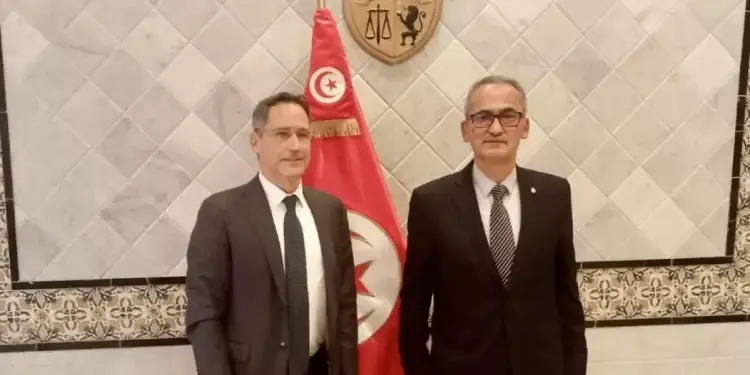Secretary of state Mohamed Ben Ayed received on Monday April 7, American ambassador Joey Hood, while trade tensions between the two countries are intensifying. This strategic meeting took place two days after the entry into force of an American tax of 28 % on flagship products from Tunisian export, such as olive oil and dates.
During the interview, Mr. Ben Ayed reaffirmed Tunisia’s desire to strengthen its cooperation relations with the United States, emphasizing the economic and commercial sectors. Discussions mainly focused on these new customs measures and possible strategies to reduce the negative impact on the Tunisian economy.
For his part, the ambassador Hood underlined “the depth of the historic friendship” between the two nations and the importance that Washington attaches to the development of bilateral relations in areas of common interest.
These new taxes represent a serious threat to the competitiveness of Tunisian exports to the American market, which had reached 1.9 billion dinars (around 600 million dollars) in 2024. Faced with this challenge, Tunisia could consider an approach similar to that of Zimbabwe, which, confronted with comparable measures, has suspended its own customs rights on American imports Negotiations with the Trump administration.
A former diplomat calls for “more daring diplomacy”
In this tense context, the former Tunisian ambassador in Washington, Nejib Hachana, said yesterday on the Mosaique FM that the automotive spare parts sector would be the most hard hit by this American decision. Hachana pleaded for the adoption of a “more daring diplomacy” in relations with the United States, recalling that Tunisia has historically succeeded in defending its interests thanks to its diplomatic action since independence.
The former diplomat has also deplored the weakening of Tunisian diplomacy since January 2011, attributing it to frequent appointments at the head of the Ministry of Foreign Affairs and the absence of a clear strategic vision. He recalled that between 1957 and 1987, the United States had contributed $ 5 billion to the development of Tunisia, mainly in the form of donations and loans with advantageous conditions, with interest rates not exceeding 1 to 2 %.








